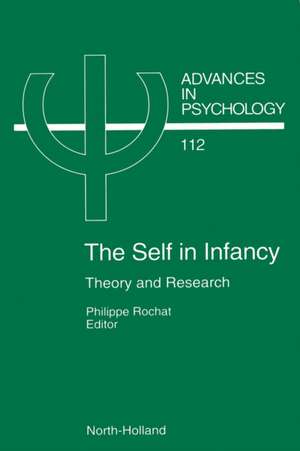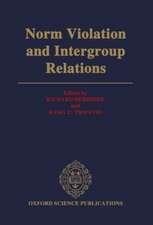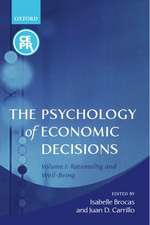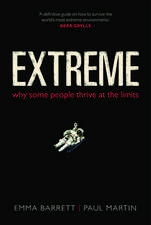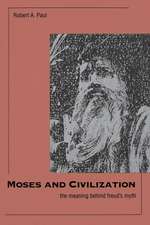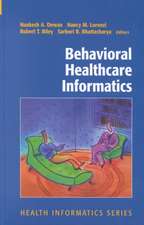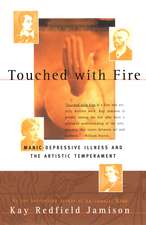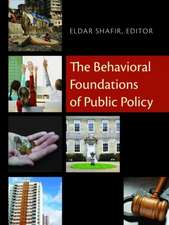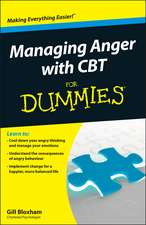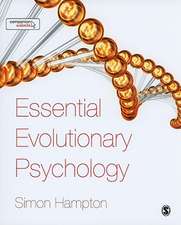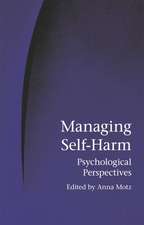The Self in Infancy: Theory and Research: Advances in Psychology, cartea 112
Editat de P. Rochaten Limba Engleză Hardback – 29 oct 1995
Din seria Advances in Psychology
- 18%
 Preț: 949.99 lei
Preț: 949.99 lei - 15%
 Preț: 457.33 lei
Preț: 457.33 lei - 23%
 Preț: 683.48 lei
Preț: 683.48 lei - 23%
 Preț: 675.31 lei
Preț: 675.31 lei - 23%
 Preț: 676.64 lei
Preț: 676.64 lei - 5%
 Preț: 839.37 lei
Preț: 839.37 lei - 5%
 Preț: 834.81 lei
Preț: 834.81 lei - 23%
 Preț: 668.19 lei
Preț: 668.19 lei - 34%
 Preț: 317.98 lei
Preț: 317.98 lei - 23%
 Preț: 674.72 lei
Preț: 674.72 lei - 20%
 Preț: 1422.35 lei
Preț: 1422.35 lei - 27%
 Preț: 737.53 lei
Preț: 737.53 lei - 20%
 Preț: 1519.06 lei
Preț: 1519.06 lei - 5%
 Preț: 1542.08 lei
Preț: 1542.08 lei - 27%
 Preț: 1020.01 lei
Preț: 1020.01 lei - 27%
 Preț: 1127.58 lei
Preț: 1127.58 lei - 27%
 Preț: 1330.32 lei
Preț: 1330.32 lei - 27%
 Preț: 998.93 lei
Preț: 998.93 lei - 27%
 Preț: 1300.14 lei
Preț: 1300.14 lei - 27%
 Preț: 1299.87 lei
Preț: 1299.87 lei - 27%
 Preț: 1080.20 lei
Preț: 1080.20 lei - 27%
 Preț: 1076.26 lei
Preț: 1076.26 lei - 27%
 Preț: 1075.55 lei
Preț: 1075.55 lei - 27%
 Preț: 1078.09 lei
Preț: 1078.09 lei - 27%
 Preț: 1161.01 lei
Preț: 1161.01 lei - 27%
 Preț: 763.84 lei
Preț: 763.84 lei - 27%
 Preț: 908.62 lei
Preț: 908.62 lei - 27%
 Preț: 862.90 lei
Preț: 862.90 lei - 27%
 Preț: 770.45 lei
Preț: 770.45 lei - 5%
 Preț: 1010.86 lei
Preț: 1010.86 lei - 23%
 Preț: 713.55 lei
Preț: 713.55 lei - 23%
 Preț: 616.28 lei
Preț: 616.28 lei - 20%
 Preț: 691.31 lei
Preț: 691.31 lei - 23%
 Preț: 628.12 lei
Preț: 628.12 lei - 23%
 Preț: 653.33 lei
Preț: 653.33 lei - 27%
 Preț: 1382.65 lei
Preț: 1382.65 lei - 27%
 Preț: 1134.35 lei
Preț: 1134.35 lei - 23%
 Preț: 620.13 lei
Preț: 620.13 lei - 23%
 Preț: 651.55 lei
Preț: 651.55 lei - 23%
 Preț: 627.38 lei
Preț: 627.38 lei - 23%
 Preț: 616.73 lei
Preț: 616.73 lei - 27%
 Preț: 1051.14 lei
Preț: 1051.14 lei - 23%
 Preț: 627.09 lei
Preț: 627.09 lei - 27%
 Preț: 1198.73 lei
Preț: 1198.73 lei - 27%
 Preț: 1109.39 lei
Preț: 1109.39 lei - 27%
 Preț: 969.09 lei
Preț: 969.09 lei - 27%
 Preț: 1107.69 lei
Preț: 1107.69 lei - 5%
 Preț: 837.76 lei
Preț: 837.76 lei - 23%
 Preț: 621.30 lei
Preț: 621.30 lei
Preț: 985.10 lei
Preț vechi: 1201.34 lei
-18% Nou
Puncte Express: 1478
Preț estimativ în valută:
188.49€ • 197.34$ • 155.97£
188.49€ • 197.34$ • 155.97£
Carte disponibilă
Livrare economică 17-31 martie
Livrare express 28 februarie-06 martie pentru 41.58 lei
Preluare comenzi: 021 569.72.76
Specificații
ISBN-13: 9780444819253
ISBN-10: 0444819258
Pagini: 480
Dimensiuni: 156 x 234 x 27 mm
Greutate: 0.87 kg
Editura: ELSEVIER SCIENCE
Seria Advances in Psychology
ISBN-10: 0444819258
Pagini: 480
Dimensiuni: 156 x 234 x 27 mm
Greutate: 0.87 kg
Editura: ELSEVIER SCIENCE
Seria Advances in Psychology
Cuprins
Part I: Theory. 1. Are we automata? (E.J. Gibson). 2. Criteria for an ecological self (U. Neisser). 3. The self as an object of consciousness in infancy (G. Butterworth). 4. Early objectification of the self (P. Rochat). 5. A theory of the role of imitation in the emergence of self (A.N. Meltzoff, M.K. Moore). 6. Aspects of self: From systems to ideas (M. Lewis). 7. Relational narratives of the prelinguistic self (A. Fogel). 8. From direct to reflexive (self-) knowledge: A recursive model (self-produced) actions considered as transformations (P. Mounoud). 9. The unduplicated self (D.J. Povinelli). 10. The self as reference point: Can animals do without it? (E.C. Spada et al.). Part II: Research. Section 1: The Self Revealed in Posture and Action. 11. Self-knowledge of body position: Integration of perceptual and action system information (M.A. Schmuckler). 12. Using a computerized testing system to investigate the preconceptual self in nonhuman primates and humans (M.J. Jorgensen et al.). 13. Move yourself, baby! Perceptuo-motor development from a continuous perspective (A.L.H. Van der Meer, F.R. Van der Weel). 14. Interactions between the vestibular and visual systems in the neonate (F. Jouen, O. Gapenne). 15. Two modes of perceiving the self (B.I. Bertenthal, J.L. Rose). Section 2: Perceptual Origins of the Self. 16. The effect of blindness on the early development of the self (A.E. Bigelow). 17. Intermodal origins of self-perception (L.E. Bahrick). 18. Self-orientation in early infancy: The general role of contingency and the specific case of reaching the mouth (J.S. Watson). 19. The function and determinants of early self-exploration (P. Rochat, R. Morgan). Section 3: Social Origins of the Self. 20. Self/other differentiation in the domain of intimate socio-affective interaction: Some considerations (D.N. Stern). 21. Becoming a self (E.S. Reed). 22. Understanding the self as social agent (M. Tomasello). Author index. Subject index.
